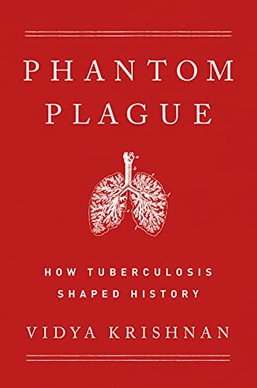Phantom Plague
Phantom Plague is a term that may refer to a hypothetical or fictional disease, often used in literature, media, or discussions about pandemics to describe an illness that has devastating effects on populations but does not exist in reality. The concept of a phantom plague can also be applied to diseases that are poorly understood, emerging, or have symptoms that are difficult to diagnose, leading to widespread fear and speculation. This article will focus on the broader understanding of phantom plagues in society, their impact on public health, and the importance of preparedness and response to emerging infectious diseases.
Overview[edit | edit source]
A phantom plague typically embodies the collective fears of society regarding disease and death. It often features in speculative fiction, where it serves as a plot device to explore themes of survival, societal collapse, and the human response to existential threats. In real-world contexts, the term can be used metaphorically to describe the panic and misinformation that can surround emerging diseases, especially in the early stages of an outbreak when little is known about the pathogen.
Characteristics[edit | edit source]
Phantom plagues are characterized by several key features:
- Unknown Etiology: The cause of the disease is often unknown or poorly understood, contributing to fear and speculation.
- Rapid Spread: These diseases are typically depicted as highly contagious, spreading quickly through populations.
- High Mortality: A high death rate is a common feature, with the disease causing widespread fatalities.
- Global Impact: Phantom plagues usually have a global reach, affecting countries and populations worldwide.
- Societal Disruption: The impact of these plagues goes beyond health, causing significant social, economic, and political disruption.
Impact on Public Health[edit | edit source]
The concept of a phantom plague has real-world implications for public health. It highlights the importance of preparedness and the need for robust health systems capable of responding to emerging infectious diseases. The fear and uncertainty associated with phantom plagues can lead to misinformation, stigma, and panic, which can hinder response efforts and exacerbate the spread of disease.
Preparedness and Response[edit | edit source]
Effective preparedness and response to phantom plagues involve several key strategies:
- Surveillance and Monitoring: Early detection of outbreaks through global surveillance systems is crucial for containing diseases.
- Research and Development: Investing in research to understand new pathogens and develop vaccines and treatments is essential.
- Public Health Infrastructure: Strong public health infrastructure, including healthcare facilities and trained personnel, is vital for managing outbreaks.
- Communication: Clear, accurate, and timely communication can help prevent panic, combat misinformation, and encourage compliance with public health measures.
- International Cooperation: Global health threats require a coordinated international response, emphasizing the importance of cooperation among countries and organizations.
Conclusion[edit | edit source]
While the term "phantom plague" may suggest a fictional or hypothetical scenario, it serves as a reminder of the real and present danger posed by emerging infectious diseases. The COVID-19 pandemic has underscored the importance of global preparedness and response to such threats. Understanding the characteristics and impacts of phantom plagues can help societies better prepare for and respond to future health crises.
Search WikiMD
Ad.Tired of being Overweight? Try W8MD's physician weight loss program.
Semaglutide (Ozempic / Wegovy and Tirzepatide (Mounjaro / Zepbound) available.
Advertise on WikiMD
|
WikiMD's Wellness Encyclopedia |
| Let Food Be Thy Medicine Medicine Thy Food - Hippocrates |
Translate this page: - East Asian
中文,
日本,
한국어,
South Asian
हिन्दी,
தமிழ்,
తెలుగు,
Urdu,
ಕನ್ನಡ,
Southeast Asian
Indonesian,
Vietnamese,
Thai,
မြန်မာဘာသာ,
বাংলা
European
español,
Deutsch,
français,
Greek,
português do Brasil,
polski,
română,
русский,
Nederlands,
norsk,
svenska,
suomi,
Italian
Middle Eastern & African
عربى,
Turkish,
Persian,
Hebrew,
Afrikaans,
isiZulu,
Kiswahili,
Other
Bulgarian,
Hungarian,
Czech,
Swedish,
മലയാളം,
मराठी,
ਪੰਜਾਬੀ,
ગુજરાતી,
Portuguese,
Ukrainian
Medical Disclaimer: WikiMD is not a substitute for professional medical advice. The information on WikiMD is provided as an information resource only, may be incorrect, outdated or misleading, and is not to be used or relied on for any diagnostic or treatment purposes. Please consult your health care provider before making any healthcare decisions or for guidance about a specific medical condition. WikiMD expressly disclaims responsibility, and shall have no liability, for any damages, loss, injury, or liability whatsoever suffered as a result of your reliance on the information contained in this site. By visiting this site you agree to the foregoing terms and conditions, which may from time to time be changed or supplemented by WikiMD. If you do not agree to the foregoing terms and conditions, you should not enter or use this site. See full disclaimer.
Credits:Most images are courtesy of Wikimedia commons, and templates, categories Wikipedia, licensed under CC BY SA or similar.
Contributors: Prab R. Tumpati, MD

